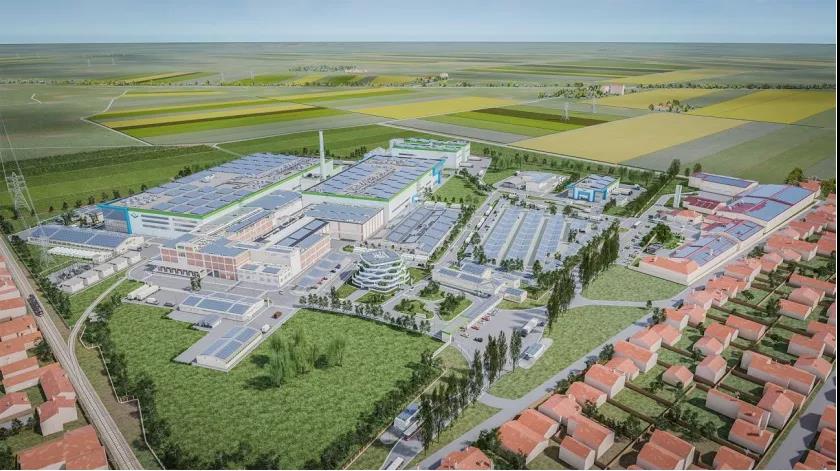Europe’s first LFP battery factory landed with a capacity of 16GWh
Summary:
ElevenEs plans to build the first LFP battery super factory in Europe. By 2023, the plant is expected to be able to produce LFP batteries with an annual capacity of 300MWh. In the second phase, its annual production capacity will reach 8GWh, and will subsequently be expanded to 16GWh per year.
Europe is “eager to try” the large-scale mass production of LFP batteries.
Serbian battery developer ElevenEs said in a statement on October 21 that it will build the first LFP battery super factory in Europe.
ElevenEs is now in production and has chosen a plot of land in Subotica, Serbia as its future super factory. By 2023, the plant is expected to be able to produce LFP batteries with an annual capacity of 300MWh.
In the second phase, its annual production capacity will reach 8GWh, and will subsequently be expanded to 16GWh per year, enough to equip more than 300,000 electric vehicles with batteries each year.
ElevenEs’ production site in Subotica, Serbia
For the construction of this super factory, ElevenEs has received investment from European sustainable energy innovation agency EIT InnoEnergy, which has previously invested in local European battery companies such as Northvolt and Verkor.
ElevenEs said that the plant facilities are planned to be located close to Jadar Valley, Europe’s largest lithium deposit.
In July this year, the mining giant Rio Tinto announced that it had approved an investment of US$2.4 billion (approximately RMB 15.6 billion) in the Jadar project in Serbia, Europe. The project will be put into operation on a large scale in 2026 and reach its maximum production capacity in 2029, with an estimated annual output of 58,000 tons of lithium carbonate.
It is learned from the official website that ElevenEs focuses on the LFP technology route. Since October 2019, ElevenEs has been conducting research and development on LFP batteries and opened a research and development laboratory in July 2021.
At present, the company produces square and soft-pack batteries, which can be used in energy storage systems from 5kWh to 200MWh, as well as electric forklifts, mining trucks, buses, passenger cars and other fields.
It is worth noting that more and more international OEMs, including Hyundai, Renault, Volkswagen, Ford, etc., have begun planning to introduce LFP batteries. Tesla recently stated that it is making all standard battery life electric vehicles worldwide. Switch to LFP batteries to drive demand for LFP batteries.
Under the pressure of changes in battery technology routes of international OEMs, Korean battery companies have begun to consider developing LFP system products to meet their customers’ needs.
SKI CEO said: “Automakers are very interested in LFP technology. We are considering developing LFP batteries for low-end electric vehicles. Although its capacity density is low, it has advantages in terms of cost and thermal stability.”
LG New Energy started to develop LFP battery technology at the Daejeon Laboratory in South Korea at the end of last year. It is expected to build a pilot line in 2022 at the earliest, using the soft pack technology route.
It is foreseeable that as the global penetration of LFP batteries accelerates, more international battery companies will be attracted to enter the LFP array, and it will also provide opportunities for a group of Chinese battery companies with strong competitive advantages in the LFP battery field.
Post time: Oct-26-2021




